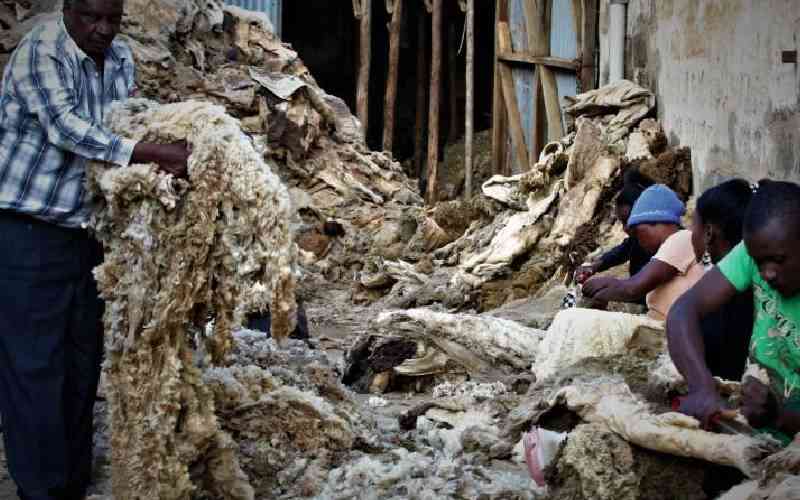×
The Standard e-Paper
Smart Minds Choose Us

Karori Mewangi, director Eldoret tanners (left) and his workers sort out skins and hides before disposing them for markets in and outside the country. [Peter Ochieng, Standard]
Dealers of raw hides and skins want the government to reduce export duty on animal products from the current 80 per cent to 30 per cent to stop alleged smuggling and allow exportation to West Africa.







